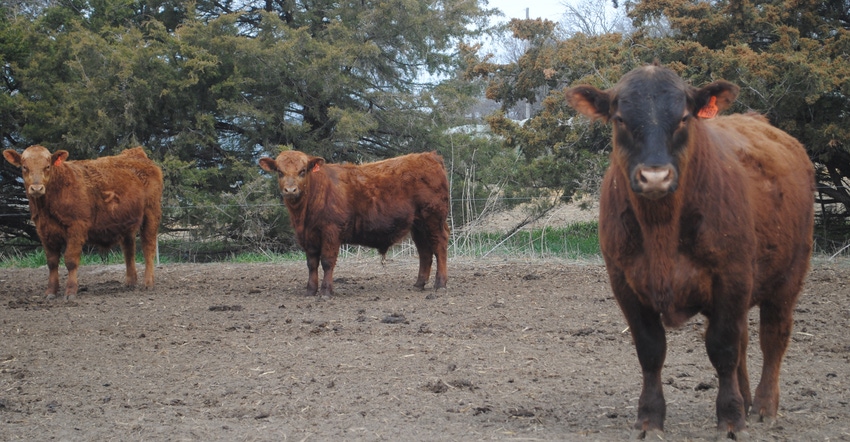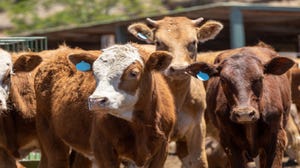Be sure to have your veterinarian conduct a breeding soundness exam.

Bulls can lose a lot of weight and condition during one breeding season. Young and thin bulls, especially, need extra attention and nutrition over late summer and winter to get them ready for another breeding season.
Kacie McCarthy, Nebraska Extension beef cow-calf specialist, said the overall nutrient requirements of bulls varies, depending on size and age. She gave an example during a recent University of Nebraska BeefWatch webinar.
A younger bull weighing 1,200 pounds at the beginning of a 90-day breeding season might go into the season with a body condition score of 5. After 90 days of breeding, that bull might be down to 900 pounds in weight and have a BCS of 3.
The goal would be to offer late-summer and winter grazing for that bull with grain or byproduct supplements and proper minerals to bring him back up to 1,500 pounds and a BCS of 6 before the next breeding season.
Breeding soundness exams
In addition to nutrition, producers need to worry about winter frostbite of scrotal tissue on the bulls, and the effect of that on sperm quality.
“Sperm quality impacts pregnancy rates,” McCarthy said. “We recommend doing breeding soundness exams on bulls you buy, or bulls you already own, 30 to 60 days before breeding season to help identify potential problems and ensure they are satisfactory breeders."
While the BSE is only a snapshot view of the overall semen production of the bull, it can help screen potential problems.
The procedure, performed by a veterinarian, looks at the general physical health and the bull’s nutritional status and BCS. The exam looks for structural defects and potential disease conditions that would affect breeding performance.
Eyes, teeth, and feet and legs are evaluated, as well as the internal and external structures of the reproductive system. Scrotal measurements are taken and checked with the normal standards for the age of the bull.
Finally, a semen evaluation will look under a microscope at sperm motility and the morphological percentage of normal sperm, to see if these fall within satisfactory standards. Bulls that fail their initial BSE could be rechecked two to four weeks later to establish if they have improved and can move into the satisfactory category.
At the same time as the BSE, it is a good time to vaccinate bulls, control lice and flies, and check their feet and legs, McCarthy said.
“You should reintroduce the bulls to each other and give them plenty of room at this time to establish dominance,” she noted. “They will head-butt, so make sure there are no extra objects in the area that could make for injuries.”
Learn more by contacting McCarthy at [email protected]. Producers can view past topics and register for upcoming webinars at beef.unl.edu.
About the Author(s)
You May Also Like





